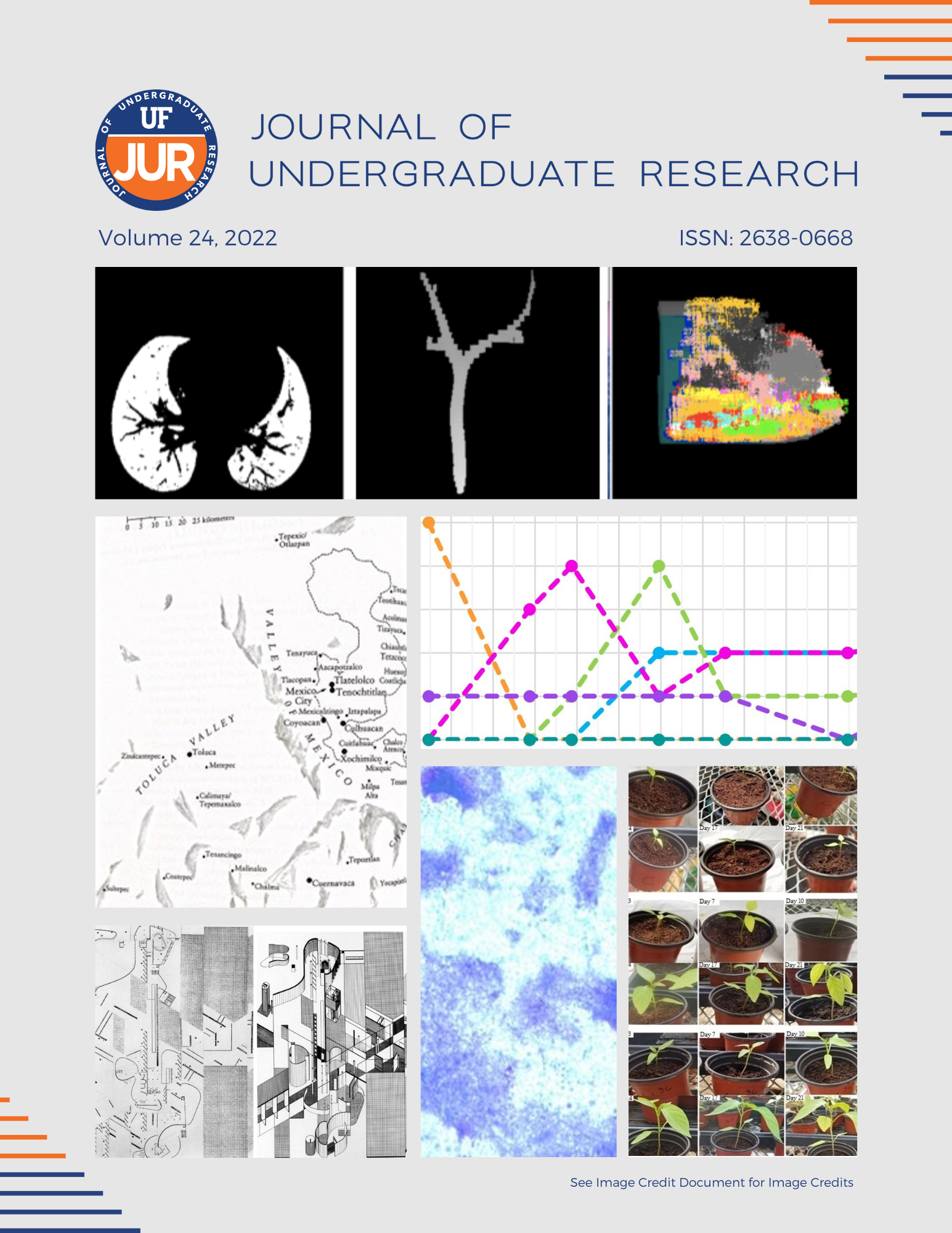Evaluating Spatial Filtering on Diffusion MRI Data Harmonization in Parkinsonism
DOI:
https://doi.org/10.32473/ufjur.24.130754Keywords:
spatial filtering, diffusion MRI, parkinsonism, harmonizationAbstract
Background: Parkinsonism is an umbrella term encompassing several disease pathologies that share common motor symptoms. The most prevalent diagnosis is Parkinson’s disease, followed by multiple system atrophy, and progressive supranuclear palsy. Early detection and differentiation between types of Parkinsonism remain an issue in clinical practice.
Objective: MRI has the potential to aid the diagnosis of Parkinsonisms. A major hurdle is combining and harmonizing the data across different MRI vendors. The objective of this study was to determine if a full width half maximum gaussian spatial filter helps harmonize data sets collected from different scanners.
Methods: Using 17 different MRI scanners, data was collected from 1,002 subjects. First, the data were spatially filtered using different sizes (no filter, 2mm, 4mm, 6mm). Data were then preprocessed and transformed into Montreal Neurological Institute (MNI) space. Next, support vector machine learning tested the training and validation accuracy of predicting diagnosis at each spatial filter setting.
Results: The training and validation data for weighted sensitivity, specificity, and accuracy were similar for all filter conditions. Differences between the weighted sensitivity, specificity, and accuracy of the training groups for all filter sizes were less than 0.1 and less than 0.2 for validation groups.
Conclusions: Training and validation predictions did not differ across spatial filters, suggesting the accuracy of the algorithm is robust at different spatial filter sizes. In conclusion, the size of the spatial filter applied to diffusion MRI data does not result in a change in the outcome of the machine learning approach.
Metrics
Downloads
Published
Issue
Section
License
Copyright (c) 2022 Madelyn Corliss, Dr. David Vaillancourt

This work is licensed under a Creative Commons Attribution-NonCommercial 4.0 International License.
Some journals stipulate that submitted articles cannot be under consideration for publication or published in another journal. The student-author and mentor have the option of determining which journal the paper will be submitted to first. UF JUR accepts papers that have been published in other journals or might be published in the future. It is the responsibility of the student-author and mentor to determine whether another journal will accept a paper that has been published in UF JUR.

